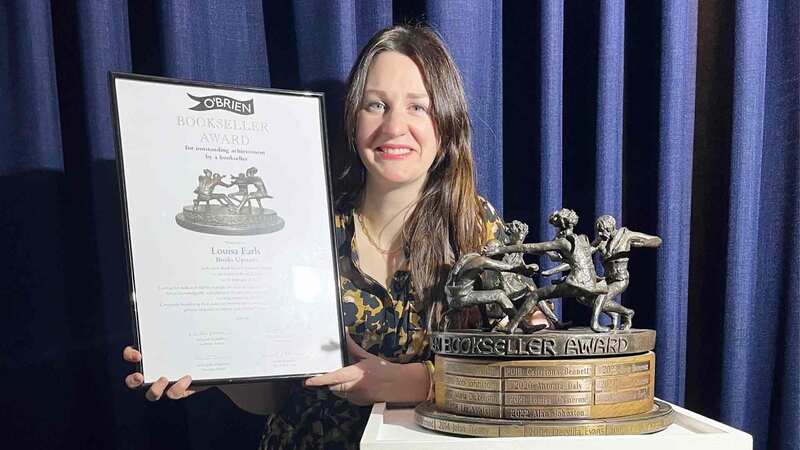You are viewing your 1 free article this month. Login to read more articles.
BISG is 'back on track'
The new Book Industry Study Group (BISG) executive director Brian O’Leary said the body’s board would be presented with a new “game plan” in six weeks’ time which would “set standards for both the US and the UK” and other global partners.
Speaking at BISG’s 40th anniversary on Friday (30th September), O’Leary of Magellan Consulting said it been a “tough” year for the group.
The financial report from outgoing treasurer and incoming chair Maureen McMahon of Kaplan Publishing revealed a net loss of $239,000 in the previous fiscal year on expenses of $1.3 million. McMahon explained that a good chunk of member dues had not been collected, due to problems in invoicing and managing the database. The current year, as yet unaudited, has been rebalanced and is in the black to the tune of $41,550.
Prior to O’Leary’s arrival, BISG had dwindled to one staff member, Kim Graff, holding the fort after the abrupt departure, at the beginning of August, of former executive director Mark Kuyper, who had been on the job just over a year. During his brief tenure, Kuyper had overseen a complete staff turnover. Now O’Leary and Graff will move to cheaper office space, where the new director will add staff as required.
O’Leary told the gathering that he intended to bring a “game plan” back to the board.
“I want to get back to doing the kind of research that shapes the conversation, but first, we need to concentrate on being an ‘info hub’ for the book industry supply chain; grow and diversify membership, and set standards – both in the U.S. and, collaborating with partners in the U.K. and elsewhere, globally,” he said.
The meeting gave out many awards, including one for excellence to Ingram Content Group Chair John Ingram. On a panel about transformation moderated by Sourcebooks c.e.o Dominique Raccah, Ingram emphasised that unlike other media, it’s hard for books to be a “background experience,” which argues in our favour. “The need to be able to concentrate makes books different,” she said.
For Ingram, transformation is all about “mindset change”.
“It isn’t incrementalism. Our motto is ‘Be brave, not stupid,’ and there’s a fine line between the two,” Ingram said. “Be aspirational; you may never hit the target, but you’re likely to get so much further.”
HarperCollins chief digital officer Chantal Restivo-Alessi agreed that “it’s important to dream big, but to break it down into small changes, make it achievable, and over-communicate at every level”.
She contrasted her experience in the music industry: books have not suffered the same huge “unbundling,” and although piracy is a serious issue and “we’re not good at measuring” it, the situation is far worse in music.
“The physical product anchors the value of a book,” Alessi asserted, “and we need to continue to enhance the value of the physical product both to the consumer and the author. This industry is very cerebral and a little negative: it doesn’t boast enough about accomplishments.”
Raccah chimed in: “some swagger would be appreciated, since we’ve done an incredible job of transitioning!”
Alessi also sees growth in the backlist, saying that the industry “hasn’t completely exploited its power and value”. Another “exciting upside” is “servicing authors more globally”.
For his part, OverDrive c.e.o Steve Potash underlined the importance of BISG to metadata standards, and how metadata is transforming the business.
In the last year, Potash said, “we were able to do presales globally because metadata provided good, credible information so institutions could commit to buying titles”. The addition of nearly 500 YA BISAC codes was a big help in driving 60% of kids and YA growth.



















